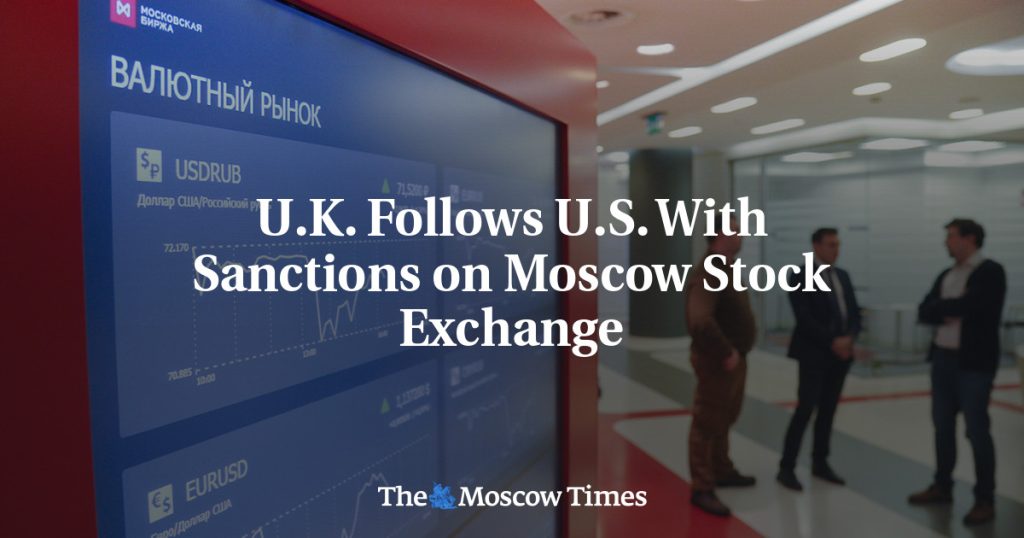The United Kingdom imposed dozens of new sanctions targeting Russia’s ability to wage war against Ukraine, in coordination with G7 partners. The restrictions focus on hitting Russia’s financial system and suppliers supporting Moscow’s military production. The move was announced as G7 leaders gathered for a summit in Italy and followed similar measures unveiled by the United States aimed at foreign banks still doing business with Russia. The Moscow Exchange responded by halting dollar and euro trades on Thursday.
The U.K. sanctions include measures against vessels in Russia’s shadow fleet, which is used to bypass Western restrictions on oil exports. Additionally, suppliers of munitions, machine tools, microelectronics, and logistics to Russia’s military, including entities in China, Israel, Kyrgyzstan, Turkey, and ships transporting military goods from North Korea to Russia, have been targeted. London also stated its intention to work with counterparts to determine a mechanism for using profits from immobilized Russian sovereign assets for the benefit of Ukraine. The White House has indicated that further steps to support Ukraine using frozen Russian assets will be discussed during the G7 meeting.
Prime Minister Rishi Sunak emphasized the importance of cutting off Vladimir Putin’s ability to fund a prolonged conflict in Ukraine, stating that he “must lose.” London’s latest sanctions are part of an effort to intensify economic pressure on Russia and hinder the country’s ability to finance its war machine. The move aligns with efforts by G7 partners to hold Russia accountable for its actions in Ukraine and prevent further aggression.
The sanctions imposed by the U.K. demonstrate a multi-faceted approach to targeting Russia’s military capabilities and financial resources. By restricting the operations of vessels in Russia’s shadow fleet and suppliers of key military equipment, London aims to disrupt Moscow’s ability to sustain its military campaign in Ukraine. The inclusion of entities based in various countries highlights the international scope of efforts to curb Russian aggression and support Ukraine’s sovereignty.
The Moscow Exchange’s decision to halt dollar and euro trades in response to the sanctions reflects the impact of these measures on Russia’s financial sector. The move signifies increased pressure on foreign banks and financial institutions that continue to engage with Russia, further isolating the country economically. By targeting key players in Russia’s military supply chain and financial system, the U.K. sanctions aim to undermine Moscow’s ability to continue its war efforts and compel a change in behavior.
In conclusion, the U.K.’s announcement of new sanctions against Russia, in coordination with G7 partners, represents a significant escalation in efforts to address the conflict in Ukraine. By targeting critical aspects of Russia’s military infrastructure and financial support systems, London aims to weaken Moscow’s ability to sustain its aggression. The move underscores the international community’s resolve to hold Russia accountable for its actions and support Ukraine in defending its sovereignty. The impact of these sanctions on Russia’s financial markets and supply chains indicates the effectiveness of economic pressure in influencing Moscow’s behavior and shaping the course of the conflict.


